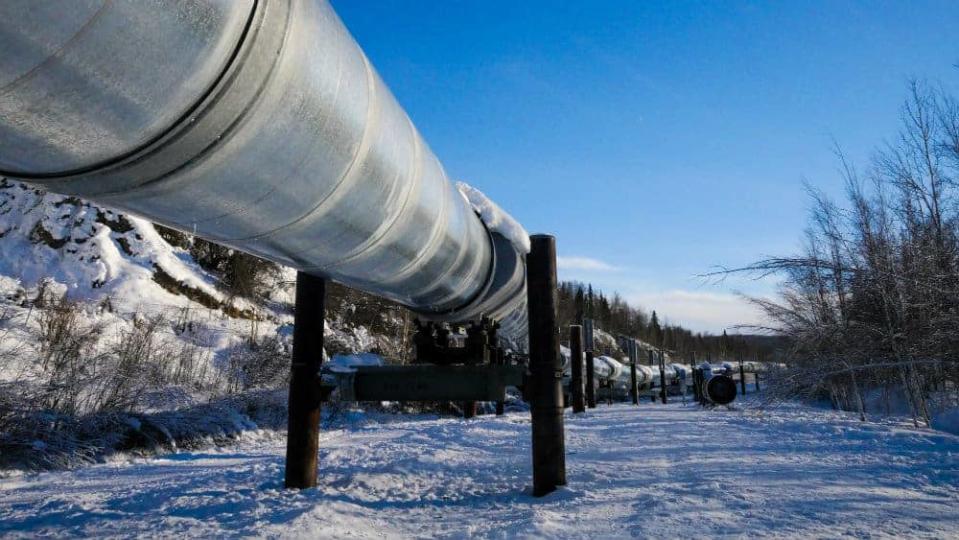The CEO of Imperial Oil Ltd (TSX:IMO) Just Went to War With Alberta’s Government

In early February, Rich Kruger, the CEO of Imperial Oil (TSX:IMO)(NYSE:IMO), decided to publicly blast the government of Alberta. Looking at the company’s business model, it’s not hard to see why he’s so upset.
The incident began in the fall of 2018, when Canadian oil prices plummeted due to a pricing war. The problem was oversupply. During the weeks prior to the pricing collapse, local oil companies were generating 10-15% more oil than the existing pipeline capacity could handle. This caused competitors to bid aggressively to move their output to refineries and higher-priced regions.
At times, crude prices in Alberta were trading at a 50% discount to U.S. benchmarks.
In December, the government forced a mandatory cut of 325,000 barrels per day. Prices quickly rebounded, but the move left many producers bitter, especially Imperial Oil.
Let’s take a look at why Imperial Oil’s CEO is so upset.
Not everyone is angry
After the cuts were announced, many local operators were pleased. Take MEG Energy for example. Before the cuts, its CEO said that he was scrambling “to figure out how we could minimize, absolutely minimize, our capital expenditure.” The production cuts helped prop up depressed selling prices, alleviating the probability that MEG Energy would have to “lay off people before Christmas.”
Why the difference in opinions between each company’s CEO? It’s all about exposure.
MEG Energy is a pure oil sands producer, meaning it pumps out oil and sells it on the open market. This makes it completely vulnerable to pricing volatility. Especially during an oil glut, MEG Energy is overexposed considering it must pay refiners increasingly onerous fees to refine and ship its production.
Because it owns its own refinery assets, Imperial doesn’t have this problem. Last quarter, the company generated 393,000 barrels per day of oil. Meanwhile, its refinery business was able to process 388,000 barrels per day, nearly the entire output of the company. Additionally, Imperial Oil operates petrol stations that sold 516,000 barrels per day.
This vertical integration gives Imperial Oil a huge advantage, as there are fewer middlemen to jack up prices during a crisis. The company owns nearly the entire value chain.
Here’s why Imperial Oil is furious
This competitive advantage was weakened as a result of Alberta’s mandatory cuts. Imperial Oil’s CEO called the move a “drastic, dramatic manipulation in the market,” highlighting that shipping crude by railroad was now economically impossible.
Before the cuts, it was shipping nearly 170,000 barrels per day via rail. By January, that fell to 90,000 barrels per day. In February, the company anticipates shipping “at or near” zero barrels this way.
This impact is huge to Imperial Oil, as it represents one of the only parts of the value chain that it doesn’t strongly control: transportation. If the cost of shipping crude by rail rises, Imperial will lose.
Importantly, the company recently revealed that it plans to spend $800 million for its massive Aspen oil sands project. Higher rail costs, however, may cause it to delay some of the spending.
In total, it’s reasonable for Imperial Oil’s CEO to be upset, but for the Alberta region as a whole, the cuts were necessary. By the end of 2019, the curtailment is expected to end, and 2020 should see normalized operating conditions. Imperial Oil’s CEO is angry, but investors looking to 2020 and beyond shouldn’t be bothered.
More reading
How to Turn Your TFSA Into a $1,000/Month-Paying Tax-Free Income Stream
Turn Your TFSA Into an Massive Income Machine With These 8% Yielders
Marijuana Investors: Did You Just Miss Out on The Buying Opportunity of the Year?
Fool contributor Ryan Vanzo has no position in any stocks mentioned.
The Motley Fool’s purpose is to help the world invest, better. Click here now for your free subscription to Take Stock, The Motley Fool Canada’s free investing newsletter. Packed with stock ideas and investing advice, it is essential reading for anyone looking to build and grow their wealth in the years ahead. Motley Fool Canada 2019

 Yahoo Finance
Yahoo Finance 